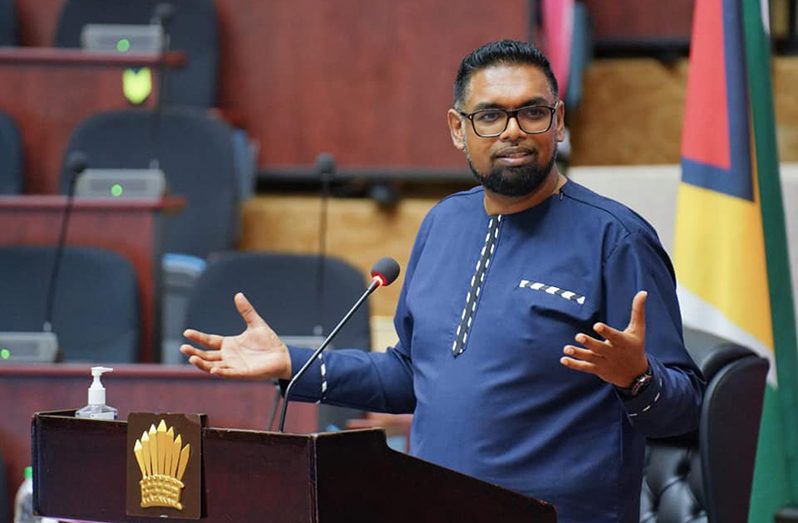(GuyanaChronicle)“We want to develop countries to deliver on their commitment to provide $100 billion to the developing countries; and that they should show signs of accelerated pledge to make up for the shortfall in prior years,” the Head of State said.
The country will also be pursuing major emitters to develop robust and ambitious climate-smart policies to cut down emissions, as well as take action to limit temperature rise to 1.5 degrees Celsius.
Efforts will also be made to make adjustments to the carbon credit market. These will include advancing operations of the loss and damage fund as well as establishing one clear identification to collect, fill the fund and disburse resources.
“We are building a sustainable, resilient and competitive Guyana in a world 2030 and beyond. That will position Guyana ahead of time,” Dr. Ali said.
According to the United Nations, this year’s conference will see the 28th session of the Conference of the Parties (COP 28), the 18th session of the Conference of the Parties serving as the meeting of the Parties to the Kyoto Protocol (CMP 18), and the fifth session of the Conference of the Parties serving as the meeting of the Parties to the Paris Agreement (CMA 5).
Guyana’s forests store approximately 19.5 gigatonnes of carbon. The country recently became the first nation to be issued TREES credits.
In simpler terms, the country can now earn money from its forest through the sale of carbon credits.
This marked a milestone as it was the first time a country was issued carbon credits specifically designed for the voluntary and compliant carbon markets for successfully preventing forest loss and degradation — a process known as jurisdictional REDD+.
Already, over 200 Indigenous communities in Guyana have begun benefitting from the sale of those carbon credits.










